Set Yourself Up for Future Success by Making the Most of Your High Income
If you’re a Millennial and you’ve found yourself with a high-earning job, you may be considered a HENRY, which stands for High Earner, Not Rich Yet. Coined by Shawn Tully in 2003, the acronym refers to a group of people who, despite making a lot of money, have not yet built their wealth and may need some guidance to take full advantage of their high salaries. Many HENRYs find themselves worried about achieving true financial stability due to high tax rates, a cost of living that continues to skyrocket, and a savings account that needs more attention.
Here are some financial planning moves you should be making if you’re a HENRY and looking to make the most of your high income.
Invest, Invest, Invest
First and foremost, you should be contributing to your workplace 401(k) account. Many employers offer to match employee contributions, so at the very least try to contribute enough to get any employer match available to you. Failing to do so means leaving money on the table – sometimes a significant amount.
In addition to your 401(k), consider opening a personal Individual Retirement Account (IRA) for yourself so that you can start making contributions there as you grow in your career, too. Currently, the annual IRA contribution limit is $6,000 per year, which can be a valuable boost to your retirement savings.
If you’re contributing to both your 401(k) and an IRA and you still have some disposable income on hand, consider building an investment portfolio for yourself, too. Think about opening a taxable brokerage account so that you can begin investing in stocks, EFTs, index funds, or mutual funds. As a millennial, you have the ability to take on more risk with your investment portfolio since you have decades ahead of you to cushion any market volatility your investments might experience. Though, if you’re nervous about taking on risk, index funds are a solid starting point. Broadly diversified index funds allow for you to invest money into many companies at once with low fees and significantly less risk than investing in a single company.
SEE ALSO: Stock Options 101: What You Need to Know About ISOs, NQSOs, and Restricted Stock
Investing can be complicated when you’re new to it, so if you’re unsure where to begin or how to go about building a portfolio, you may want to consult with a professional you trust to help you determine the best options for your situation.
Lower Your Taxable Income
Building out a smart tax strategy is crucial for high-income earners of any age, millennials included. Luckily, there are tried and true strategies out there that you can use to help reduce your taxable income so that you can put those savings towards other long-term financial goals you may have.
The best way to be sure that you’re being smart with your tax strategy is to work with a professional who understands the ins and outs of ever-changing tax laws. However, investing money into your 401(k) and IRA accounts can be an easy way to lower your bottom line, as contributions to retirement accounts can typically be deducted from your taxable income.
Another valuable way to lower your taxable income while also putting money away for your future is to open a Health Savings Account (HSA). HSAs are a fan favorite because they come with a triple-tax benefit: you can contribute funds tax-free, the money in your account grows tax-free, and any withdrawals you make from your account are tax-free – so long as you’re using the funds to pay for qualified health expenses. Note that you do need to have a high deductible health plan (HDHP) to qualify for an HSA. If you do qualify, it’s a valuable tool to take advantage of.
Develop a Strong Retirement Strategy
Along with a smart tax plan, you should also have a comprehensive retirement plan in place to help you stay on track to meet your future goals. If you’re fortunate to have a high salary, it’s important that you’re making the most of your income by setting yourself up for future success. Working with a professional advisor to develop a retirement strategy that addresses your unique values, goals, and dreams for the future can give you the confidence that you’re on the right path as you move through your career.
SEE ALSO: Effective Strategies for Early Retirement
Find a professional you trust and talk with them about what your dream retirement looks. This will help you and your advisor determine how much you’ll want to save to support that retirement lifestyle. They’ll be able to help you solidify what steps you should be taking at which points in your life to make those dreams a reality. Often, HENRYs are able to save much more than they need to for retirement, which means they also have a great need to plan for the disposition of their estate to their chosen beneficiaries. And while leaving a legacy behind is a great feeling, you may also end up realizing that you could have enjoyed more of life than you had realized.
Work Smart, Not Harder
As a millennial earning a high income, you’re most likely in a place where you can begin making big financial moves outside of the basics like having an emergency fund in place that allows for you to build some real wealth for yourself and your family. Getting smart about investing your money and lowering your taxable income can give you even more money to work with as you begin tackling your long-term financial goals. It can be especially helpful to work with a financial advisor to make sure you’re utilizing the best options and resources available to you in your unique situation.
At Wade Financial Advisory, our team of advisors are committed to taking care of what’s important so that you can focus on what matters most to you. We understand that your financial needs will change throughout your life, and we provide a high level of care and attention through personalized, relationship-based services. If you feel that you might benefit from speaking with one of our professionals about your financial plans, please contact us today.












